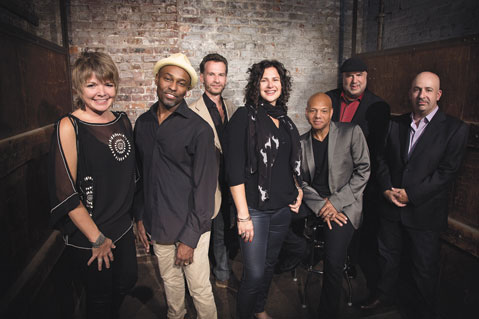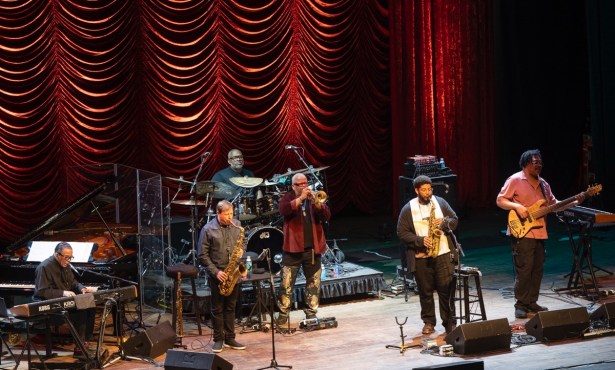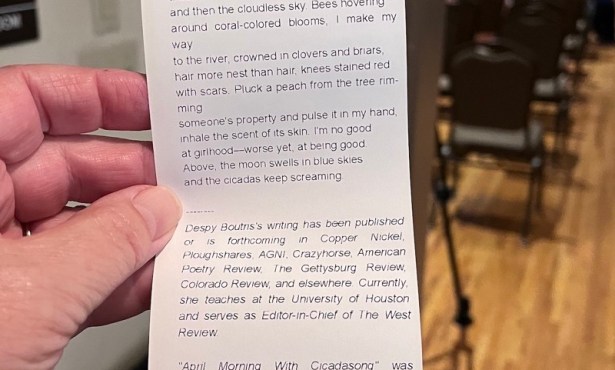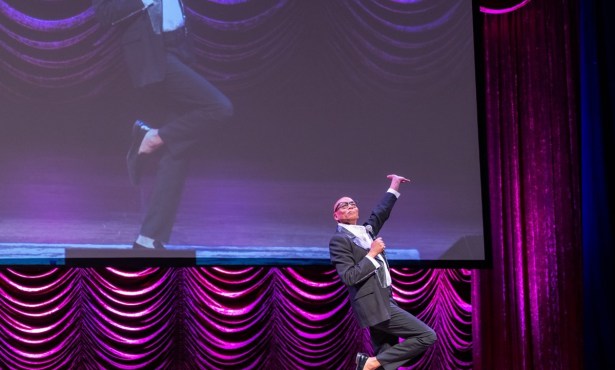Anat Cohen and the Joy of Jazz
The Newport Jazz Festival Celebrates 60 Years at the Lobero on March 14

The jazz world has changed a lot in the 60 years since the Newport Jazz Festival was founded. For one thing, this American art form has spread around the world, creating both fans and artists in unlikely places. Case in point: Israeli-born clarinetist and saxophonist Anat Cohen. She is the musical director of the Newport Jazz Festival: Now 60 band, a world-class ensemble that also includes trumpeter Randy Brecker, guitarist Mark Whitfield, and pianist Peter Martin. The group performs on Friday, March 14, at the Lobero Theatre. We recently chatted with Cohen about her approach to music-making in a telephone interview from her Brooklyn home.
You are the tour’s musical director. With a group of this level, what exactly does that mean? I don’t know! When you have a group of professionals who have different opinions, you need somebody to make the final call. It’s quite an eclectic group and very versatile. We can go in many directions. I asked everybody to bring some original music. They call the group Newport Now 60, which means there’s a “now” part — what’s happening in jazz today. People respect the tradition of this music, and they build on it. That’s what jazz has always been.
How, as an Israeli, did you get into jazz? My initial training was on the keyboard — mainly the great American songbook. In junior high, during the day I was a classical clarinetist, but after school I played New Orleans jazz and big-band music. When I got into the high school for the arts, they had just started a jazz major, so I decided to go for it and focused on the saxophone. After [a stint in] the military, I went to the Berklee College of Music [in Boston]. I’ve been here almost 20 years now.
I gather Berklee was a seminal experience for you. It was incredible. There were so many people just like me — people who had come from all over the world because they love jazz. I met people from Venezuela, Brazil, Argentina — people who loved jazz, but also the rhythms of their own country, and were creating combinations. This gave me a whole new understanding.
Did you similarly reach back into your own roots as part of your jazz studies? For me, going back to play the clarinet felt like going back home. Some melodies come to me much more naturally on the clarinet. I focused on the saxophone ever since high school. It wasn’t until my album Poetica, which I recorded in 2006, that I went back to the clarinet. It felt like it was waiting for me! I always felt I couldn’t find a place for me to play clarinet [in a jazz ensemble]. People would make a face when I said I wanted to play it. I got my confidence back on the clarinet playing Brazilian choros and then started to incorporate it with other kinds of music. It wasn’t my plan; it just happened.
It’s kind of cool that you rediscovered your own roots by playing music from a different culture. Will you be playing both instruments on this tour? Yes. They are both expressive, but I feel more like myself when I play the clarinet. When I play the tenor saxophone — the history of that instrument in jazz is so long, strong, and heavy.
It weighs on you? Yeah.
Speaking of emotional burdens, is it still awkward being a woman in jazz? Or is it no longer that much of an issue? I assume you’re the only woman on the bandstand much of the time. I am. It’s really nice that [vocalist] Karrin Allyson will be on this tour. It’ll be great having her to hang out with in the dressing room! There are times you get an attitude from random individuals in the business. Some people are just narrow-minded. They live in fear. They make remarks here and there. But in general, there is more and more tolerance. It’s getting to be more of a norm to have women playing. I’m working hard in that department, too! And now that I travel as a bandleader, people are less likely to make [sexist] remarks. I’m the headliner, so they are more likely to behave.
So how do you react to such remarks? Do you let them slide? I turn around, take a deep breath, and let it pass. I prefer to solve conflict with kindness. That’s my first approach. If that doesn’t work, there’s always the alternative. I’m from Israel. I can tell a person what I think if I have to!
4•1•1
Anat Cohen takes the stage with the Newport Jazz Festival: Now 60 band on Friday, March 14, at 8 p.m. at the Lobero Theatre (33 E. Canon Perdido St.). For tickets and info, call (805) 963-0761 or visit lobero.com.



